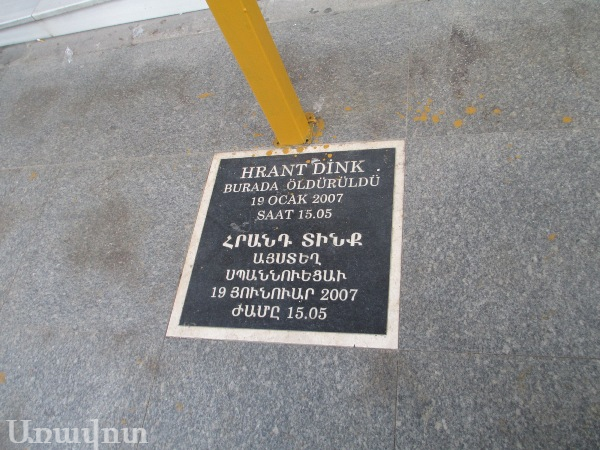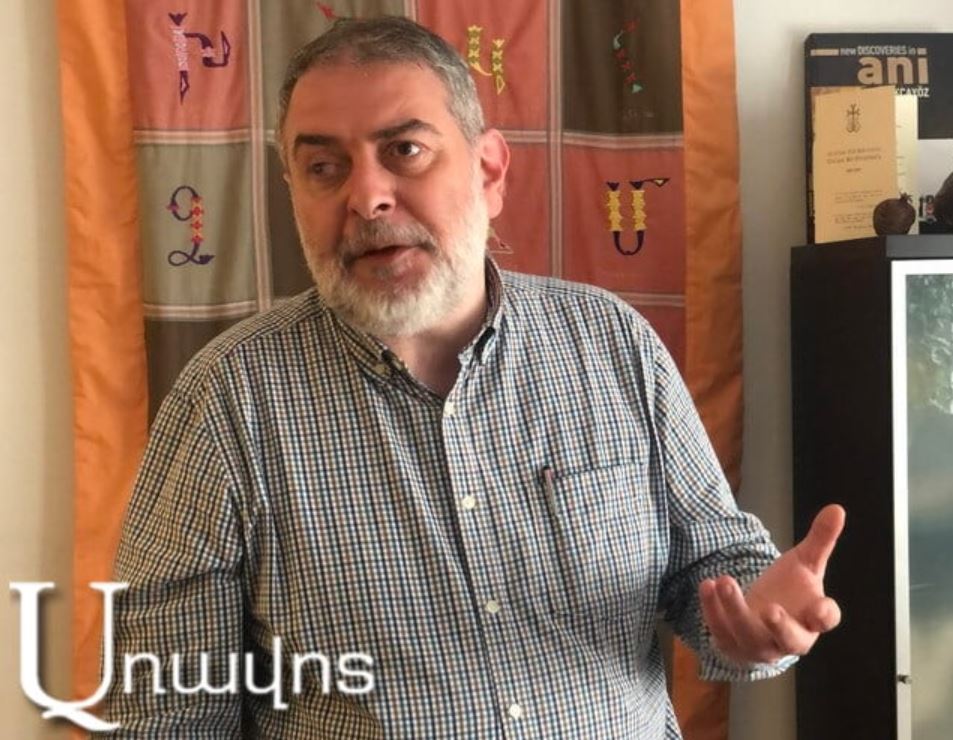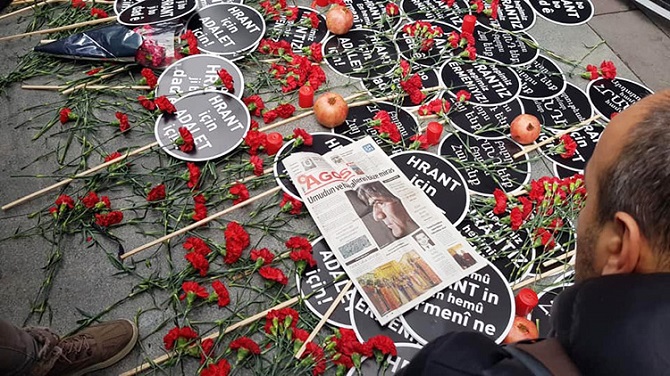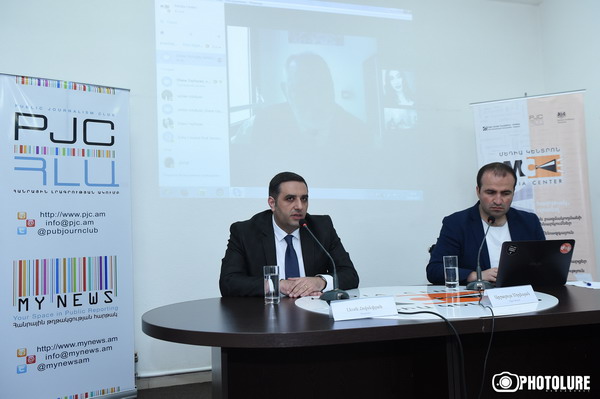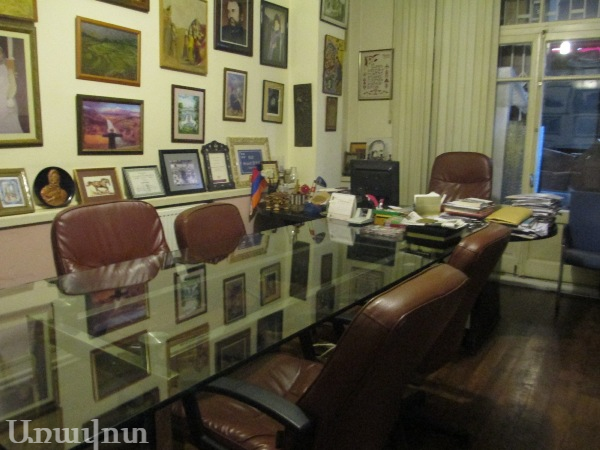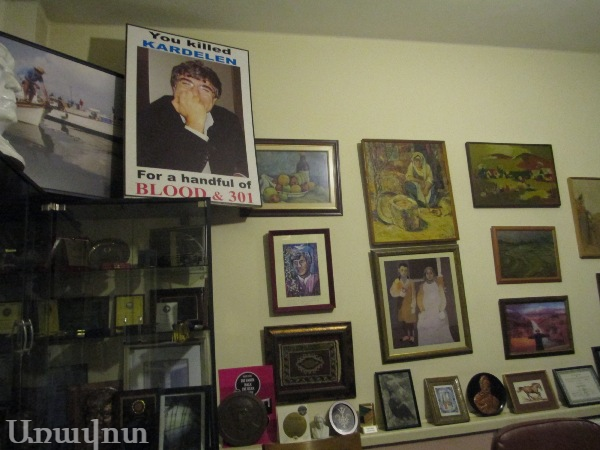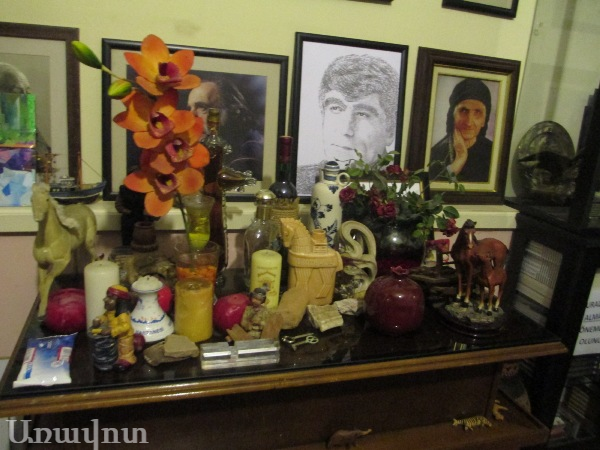Armenian and Turkish journalists and bloggers visited “Agos” editorial
“Aravot” was participating in a two-week bus tour organized in financial support of the “Eurasia Partnership” Foundation and the “European Union”. Under this project, ten Armenian and Turkish journalists and bloggers visited several cities of Turkey and Armenia. The group of journalists spent one day in Istanbul, Turkey. To be there and not to be in “Agos” editorial was impossible. First, we stopped for a few minutes in front of the editorial office, where the founder of “Agos”, Armenian-origin Hrant Dink was killed seven years ago, later on, in the editorial house we talked to the editor of the Armenian section Pakrat Estukyan.
The first Turkic Armenian newspaper in the history of Istanbul, the “Agos” editorial office, according to Mr. Estukyan, has a staff of 25 people. Not all of them are Armenians, perhaps “non-Armenians” are more. Mr. Estukyan says that they are more sensitive to the Armenian issue, closely follow the international press, and promptly respond to speculations on the Armenian issue in them.
Hrant Dink’s office, the “Agos”, is a political newspaper with an opposition stance, Mr. Estukyan is convinced. He says that many newspapers, given the country’s oppressive conditions, do not address the political life, they prefer to write about religious events, moreover, offer pages for presenting the content of the propaganda. They also write about religious events, but in less portion and highlight especially covering the country’s political life.
Read also
Caption – Hrant Dink’s office
The main income of the newspaper, as said by the editor of Armenian pages of “Agos”, are the public notices, the state, however, provides donations for publications of the minorities, nevertheless, they are not inclined to accept these donations, they are not “warm” to them, they would more prefer to receive revenues from the first source.
“Agos” is not reach Armenia, and Mr. Estukyan is concerned about it, saying that we do not have a marine border with Armenia, and on the available border, the Armenian officials do not allow “Agos” to enter Armenia, and he does not understand why. Caption – Editor of the Armenian pages of “Agos” newspaper Pakrat Estukyan
Pakrat Estukyan does not deny that “Agos” newspaper became especially known in Turkey after the murdering of the founder-editor of the newspaper, Hrant Dink. The newspaper’s circulation increased four times of today’s print run: 20 000 – 25 000 copies.
Speaking of the upcoming events in the newspaper and dedicated to the Armenian Genocide Centennial, Mr. Estukyan noted that, basically, they have not planned any ad-hoc series of articles or events for the Genocide Centennial. “But in our newspaper, the subject of Genocide has been the most discussed in all these years, since the foundation of the newspaper. Many of our local newspapers avoid this subject. It is a thorny field for them, but we are the first to raise the issue of demand in the subject of Genocide,” says he. We also talked to Mr. Estukyan about the Islamized Armenians living in Istanbul, whom the local Armenian community does not admit.
According to the editor of the Armenian pages of “Agos”, the Christian Istanbul-Armenians say on this occasion, “Being an Armenian, I was persecuted in the same country for ninety years, you being named Ahmed and Mohamed quietly lived. Now, what do you want from me? We should we be equal? You have already deviated from your path ninety years ago; go away, my whole family was deceased for not changing the religion.” Mr. Estukyan believes that such a position is due to a lack of consciousness. “These people need to be understood, their ancestors apostatized, now they have listened to the voice of their conscience, the call of their blood and want to turn back,” says he, adding that what they need is just to reach a hand to these people. He brings two reasons for denial attitude towards these people by the church. “Those representing the church are afraid of their skin. They are very afraid that the state can blame them,” says he, and as a second reason, mentions that the church does not know what language to speak to them after acknowledging the Islamized Armenians. To the question of the journalists of how many Islamized Armenians are in Turkey, Mr. Estukyan immediately answered that the question is in the speculative field and was reluctant to mention any numbers, he just said, “More than we can imagine.”
Hripsime HOVHANNISYAN


















































